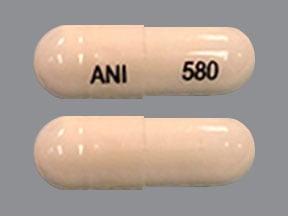
Prazosin Coupons & Savings Card – Discount Prices from $6.92
Generic for: Minipress
My prescription
Edit
1MG, Prazosin (30 Capsules)
Select pharmacy

CVS
$19.54
COUPON PRICE
Walmart
$6.92
COUPON PRICE
Walgreens
$9.92
COUPON PRICE
Albertsons
$12.12
COUPON PRICEPrazosin savings card
Show this card to your pharmacist
Walmart
$6.92
BIN
ID
PCN
GRP
019876
LH3B8F9DD2
CHIPPO
LHX
Powered by
More prescriptions for hypertension
More prescriptions for hypertension
Price history for Minipress (brand) & Prazosin (generic)
30 Capsules, 1MG
Average retail price for Minipress
Average retail price for Prazosin
Average SaveHealth price for Prazosin
Our price history data is based on aggregated prescription data collected from participating pharmacies in America. Our prescription data updates daily to reflect the latest price changes. If you notice a missing data point, it means there wasn't sufficient data available to generate a monetary value for that date.
We analyzed Prazosin prices for (1MG, 30 Capsules) over the last 12 months. The average retail price was $37.17, while the average price using the SaveHealth discount card was $11.80. That's a savings of approximately 68.25% when using our Prazosin coupon.
Compared to the generic version, Minipress had an average price of $691.64 over the same time period. With the SaveHealth savings card, Prazosin is 98.29% cheaper on average than Minipress.
*Retail prices are based on pharmacy claims data, and may not be accurate when we don't have enough claims.
Prazosin dosage forms
Dosage Quantity Price from Per unit 1MG 30 Capsules $6.92 $0.23 1MG 1 Capsule $2.65 $2.65 1MG 32 Capsules $7.21 $0.23 1MG 60 Capsules $11.33 $0.19 1MG 90 Capsules $22.25 $0.25 1MG 100 Capsules $23.72 $0.24 1MG 180 Capsules $31.43 $0.17 1MG 270 Capsules $37.42 $0.14 1MG 1000 Capsules $67.50 $0.07 2MG 1 Capsule $2.67 $2.67
| Dosage | Quantity | Price from | Per unit |
|---|---|---|---|
| 1MG | 30 Capsules | $6.92 | $0.23 |
| 1MG | 1 Capsule | $2.65 | $2.65 |
| 1MG | 32 Capsules | $7.21 | $0.23 |
| 1MG | 60 Capsules | $11.33 | $0.19 |
| 1MG | 90 Capsules | $22.25 | $0.25 |
| 1MG | 100 Capsules | $23.72 | $0.24 |
| 1MG | 180 Capsules | $31.43 | $0.17 |
| 1MG | 270 Capsules | $37.42 | $0.14 |
| 1MG | 1000 Capsules | $67.50 | $0.07 |
| 2MG | 1 Capsule | $2.67 | $2.67 |
| 2MG | 30 Capsules | $7.64 | $0.26 |
| 2MG | 44 Capsules | $10.04 | $0.23 |
| 2MG | 60 Capsules | $12.78 | $0.21 |
| 2MG | 90 Capsules | $22.74 | $0.25 |
| 2MG | 100 Capsules | $23.60 | $0.24 |
| 2MG | 180 Capsules | $30.47 | $0.17 |
| 2MG | 270 Capsules | $37.42 | $0.14 |
| 2MG | 1000 Capsules | $67.50 | $0.07 |
| 5MG | 1 Capsule | $2.84 | $2.84 |
| 5MG | 20 Capsules | $9.21 | $0.46 |
| 5MG | 30 Capsules | $12.56 | $0.42 |
| 5MG | 60 Capsules | $17.94 | $0.30 |
| 5MG | 90 Capsules | $28.20 | $0.31 |
| 5MG | 100 Capsules | $29.67 | $0.30 |
| 5MG | 180 Capsules | $39.80 | $0.22 |
| 5MG | 250 Capsules | $45.05 | $0.18 |
| 5MG | 500 Capsules | $63.80 | $0.13 |
| 5MG | 1250 Capsules | $120.05 | $0.10 |
